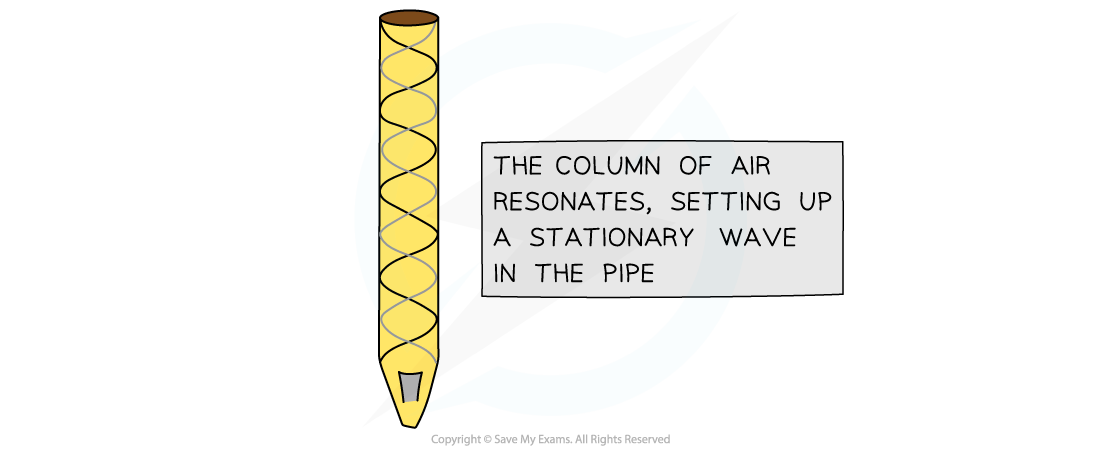Resonance (Edexcel International A Level (IAL) Physics): Revision Note
Exam code: YPH11
Resonance
The frequency of forced oscillations is referred to as the driving frequency, f, or the frequency of the applied force
All oscillating systems have a natural frequency, f0, this is defined as the frequency of an oscillation when the oscillating system is allowed to oscillate freely
Oscillating systems can exhibit a property known as resonance

When the driving frequency approaches the natural frequency of an oscillator, the system gains more energy from the driving force
Eventually, when they are equal, the oscillator vibrates with its maximum amplitude, this is resonance
Resonance is defined as:
When the frequency of the applied force to an oscillating system is equal to its natural frequency, the amplitude of the resulting oscillations increases significantly
For example, when a child is pushed on a swing:
The swing plus the child has a fixed natural frequency
A small push after each cycle increases the amplitude of the oscillations to swing the child higher. This frequency at which this push happens is the driving frequency
When the driving frequency is exactly equal to the natural frequency of the swing oscillations, resonance occurs
If the driving frequency does not quite match the natural frequency, the amplitude will increase but not to the same extent as when resonance is achieved
This is because, at resonance, energy is transferred from the driver to the oscillating system most efficiently
Therefore, at resonance, the system will be transferring the maximum kinetic energy possible
Resonance Effects
Resonance occurs for any forced oscillation where the frequency of the driving force is equal to the natural frequency of the oscillator
Examples include:
An organ pipe, where air resonates down an air column setting up a stationary wave in the pipe
Glass smashing from a high pitched sound wave at the right frequency
A radio tuned so that the electric circuit resonates at the same frequency as the specific broadcast

Standing waves forming inside an organ pipe from resonance

Unlock more, it's free!
Did this page help you?